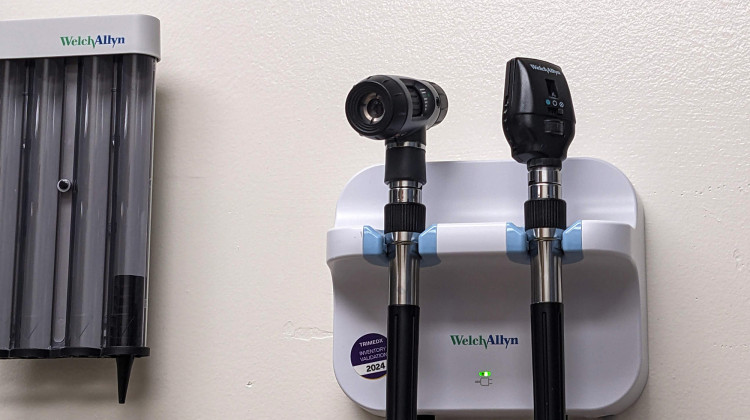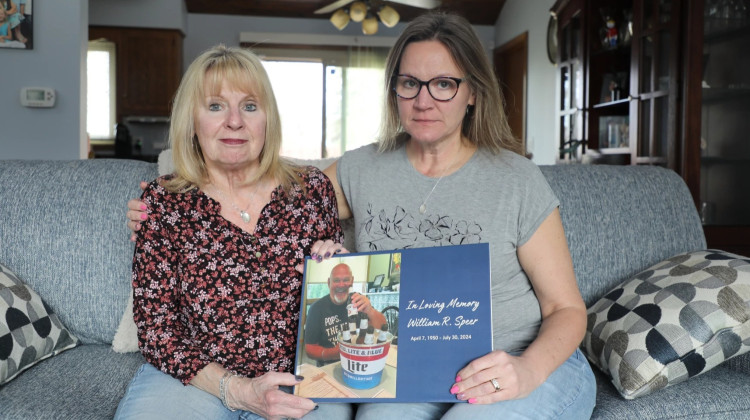
Among other things, providers brought up concerns around having to wait for reimbursements and issues with contacting the companies managing the program.
Lauren Chapman / IPB NewsThe Family and Social Services Administration said the launch of the new long-term care program for Medicaid members over 60 is going well. But several Pathways for Aging program providers are raising concerns about aspects of the implementation.
Among other things, providers brought up concerns around having to wait for reimbursements and issues with contacting the companies managing the program.
One of the metrics Indiana has used to measure success is the high rate of calls answered within 30 seconds by the companies managing the programs. FSSA said this shows people are able to reach the managed care entities, or insurers, in charge of their plan.
Deb Lambert, CEO of Bryon Wellness in Fort Wayne, said the high rate might be a result of their automated system answering quickly, but not connecting to a person.
“I have been online at the same time that I'm on a call for an hour and a half trying to get the answer to one simple question,” Lambert said. “It's been extremely frustrating.”
Lambert also said the amount of time it takes to receive reimbursements is also causing a problem.
“Our community is still waiting on over $600,000 worth of payment from one entity,” Lambert said.
Lambert said she’s concerned that FSSA isn’t truly aware of what is going on because the people reporting to the agency are not seeing the issues “on the ground” when providers or members call.
“We need to be able to have honest conversations about how it's going so that we can improve this,” Lambert said.
Other providers agreed with Lambert and brought up other concerns, including health plans forcing people to change providers, denying services and services coordinators having too big of a caseload.
READ MORE: First open enrollment period for Pathways for Aging program begins Oct. 15
Join the conversation and sign up for the Indiana Two-Way. Text "Indiana" to 765-275-1120. Your comments and questions in response to our weekly text help us find the answers you need on Medicaid and other statewide issues.
Leslie Huckleberry, director of the Division of Aging within FSSA, said if providers or Medicaid members have examples of issues, they can reach out to FSSA with that information so the agency can look into it.
“If you guys have experiences that you feel like, again, are not aligning with some of the things you're hearing from us, we welcome that feedback,” Huckleberry said. “We try and keep different lines of communication open so that you can send us that information and we can dig into it more – because we want this to work well for members. We want it to work well for providers.”
But Judith Schoon, a certified senior advisor in northwest Indiana, told Huckleberry that while she’s tried to connect members to the agency, some are afraid they might lose their services.
“For our side, it's hard to bring you specific ones because the fact that they're just terrified, they just don't want to come forward,” Shoon said.
Huckleberry said there should be no punitive or retaliatory action if a member brings forward a concern.
“If they feel like they're not able to get through with the MCE or are running into some challenges, call that member support services vendor,” Huckleberry said. “They've been a really great resource for us because they are able to collect that information and collect trends and let us know, ‘Hey, we're hearing a whole bunch about this right now.’”
The managed care entities in charge of the program are expected to be at the Indiana Commission on Aging meeting on Nov. 21 to answer questions from the commission.
Abigail is our health reporter. Contact them at aruhman@wboi.org.
 DONATE
DONATE






 Support WFYI. We can't do it without you.
Support WFYI. We can't do it without you.